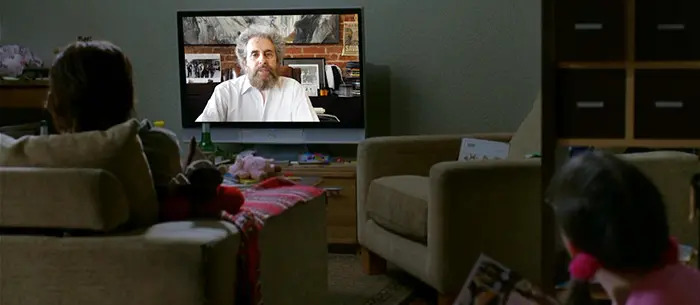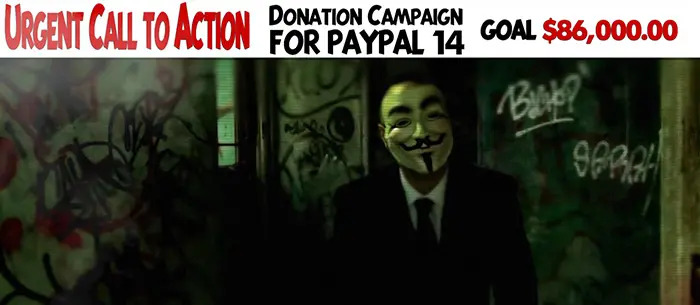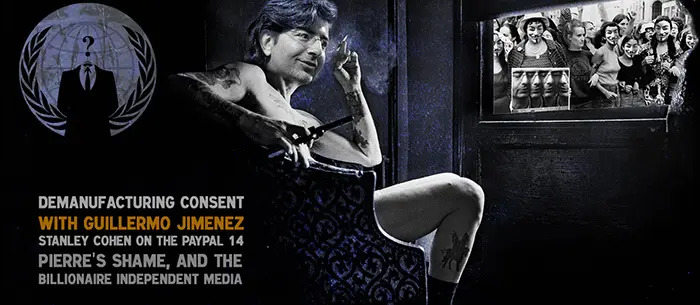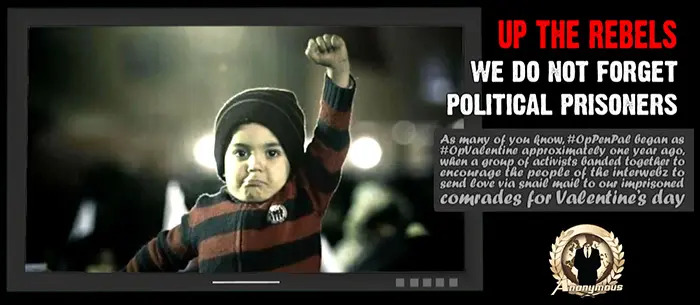Wau Holland Foundation launches campaign.
To honor the moral courage of the PayPal14.
The prominent German charity, the Wau Holland Foundation, the owner of the account blockaded by PayPal in 2010, launches campaign to raise restitution owed by 14 individuals, who were unfairly prosecuted for a peaceful digital sit-in.
When PayPal closed the account of the Wau Holland Foundation, thousands of people across the globe participated in a peaceful digital sit-in to express their disapproval at the extra-legal sanctions levied against the Wau Holland Foundation and against WikiLeaks, an on-line publisher of suppressed information. The protest was also against the attempted censorship of the press and a then unknown U.S. military whistle-blower, Chelsea Manning, by U.S. financial services companies.
WikiLeaks was just one of many important projects supported by the Wau Holland Foundation. Other project include for example: ’alpha-bit-ization’ projects, which help people – especially children – cross the digital divide by teaching them computer technology through hands-on experiences; and Wau Holland’s support for the operation of the Tor network infrastructure, as well as many other smaller projects and campaigns that help to protect and strengthen civil rights in the digital domain. All these projects were financially sanctioned as a result of the PayPal blockade.
The extra-legal sanctions by PayPal were part of a wider financial blockade against WikiLeaks that included the Wau Holland Foundation. As a result the foundation lost its charitable status in January 2011. Wau Holland was able to regain its charitable status after a two year long legal battle with supervising authorities.
Despite PayPal publicly declaring that the digital sit-in did not disrupt their services and admission that no computer was actually damaged or compromised, the Department of Justice arbitrarily indicted fourteen people, accusing them of offenses under the draconian Computer Fraud and Abuse Act. The fourteen were then threatened with long jail sentences. PayPal is a wholly owned subsidiary of Ebay. PayPal and Ebay acted as the criminal complainant in the case.
The PayPal 14 case is a litmus test for the rights of people to peacefully dissent in the digital age.
„There is no difference between democratic rights on the Internet and those in the physical world. That includes any legitimate form of political protest (digital direct action) from free speech to petitions, boycotts to sit-ins. It is neither good for society nor for the Internet when companies or governments extra-legally declare such actions criminal or even terrorist acts,” says Bernd Fix, a member of the board of the Wau Holland Foundation.
The fourteen individuals represent diverse backgrounds and political perspectives. They are parents and students, homemakers and political activists. They still face the threat of severe jail sentences if they appear to violate their plea agreement reached last year. For this reason, they are unable to speak publicly about the case. Some defendants’ lives have been so adversely affected by the Department of Justice’s over-zealous prosecution that they simply wish to conclude the matter privately and move forward.
Stanley Cohen, counsel to one of the defendants states,
„The PayPal 14 stood against the tide of political orthodoxy and repression and in the finest tradition of dissent and free speech said, ’No.’ Representing a long tradition of resistance and self-sacrifice, the PayPal 14 refused to remain silent while the government and its corporate allies at Ebay and PayPal sought to hide U.S. crimes. The PayPal 14 took action as a collective, was prosecuted as a collective, and for three years they have fought to reach a resolution that was in the best interests of the entire collective in the tradition of free and robust speech for which they all sacrificed. This collective needs our support to close this particular chapter of resistance and to move forward”.





